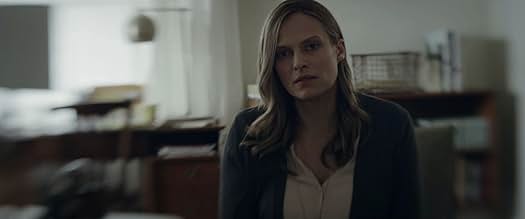I'll admit to being drawn into "Clinical" for its first 45 minutes. The plot, centering around a disillusioned psychiatrist reluctantly taking on a PTSD patient after her last go-around with an "intensive" client ended badly, offers up enough questions and mystique to lock you in. Then, somewhere around the hour mark, the film dives headfirst into a cheap plot twist that signals the film's narrative decline. The film dispenses with logic and heads into the rabbit hole, offering up a preposterous conclusion that destroys anything it previously had going for it. Twists in stories can often be used to wondrous effect, or they can derail your narrative into muck and make you wish the writer had played it straight. Often, you'll find it would have been a much better film had it dispensed with the shock factor and stuck to its guns. Such is the case with "Clinical."
I won't consider it a spoiler to say that, towards the end, things happen that beg a big "Huh?" from viewers. It's probably not a good sign for the writer when the character discovers a dead body and the viewer has to stop and ask themselves who the person is. Nor is the film in any way forthcoming about providing coherent answers to many of these questions. I'm not a lazy viewer. I don't demand a long, complicated piece of exposition to tell me everything, nor do I think all films should answer every question. But when so much of your story hinges on certain plot elements that you don't bother to fully elucidate in your narrative, the viewer can be left feeling a bit cheated. Much like the feeling one gets when a film ends before we see a proper conclusion to various plot threads that the writer has asked us to care about. Really, it's just not nice.
"Clinical" could have been something worthwhile, but ultimately the script lets the entire venture derail into frustrating ambiguity and lazy writing, offering up no compensation for the befuddled viewer who, by film's end, is left wondering why they even cared in the first place.




























